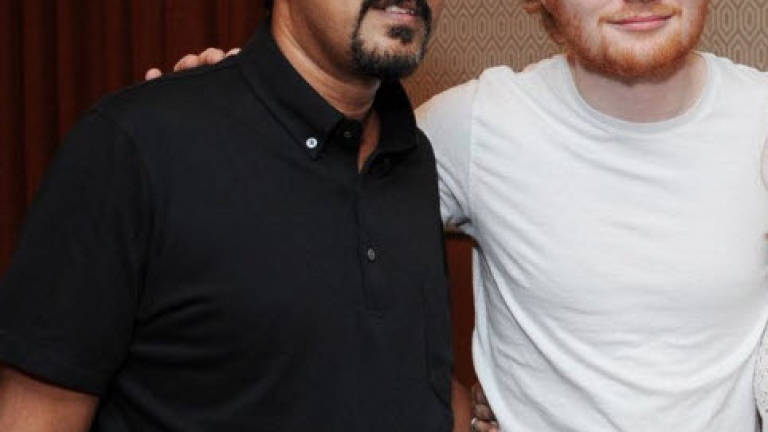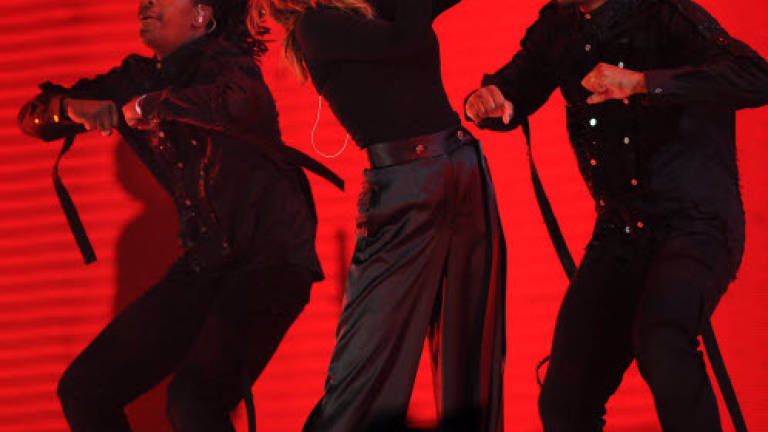Music to their ears




LOCAL not-for-profit organisation Alife (Live, International Festivals and Events Association) has finally seen a breakthrough in its relations with relevant bodies when it comes to holding live shows in Malaysia.
Alife vice-president Para R. said: “For the past two years, we have been holding dialogues with the Ministry of Tourism, Puspal (Central Agency for the Application of Filming and Performance by Foreign Artiste) and the various [city] councils.”
He added that the Ministry of Tourism is aware that music events help boost tourism and has even funded many such events.
Still, over the years, there had been many instances of concerts that were cancelled or were on the verge of being cancelled, despite getting initial approval from one authority to hold them.
This was mainly due to issues raised by other parties, said Para who is also the managing director of PR Worldwide, a company which has organised numerous events, including concerts by international artistes Ed Sheeran, Taylor Swift, and Selena Gomez.
Para added that as there was very little interaction between concert regulators and concert organisers previously, this often led to problems.
He said there were also many inconsistencies over what type of concerts could proceed, and what performances would be banned.
The turning point, according to Para, was the Selena Gomez’s concert held in July this year.
The former Disney child star-turned-recording artiste became the focal point of certain groups who wanted her show banned because she was deemed “too sexy”.
For years, many female stars have been targeted while male stars with bad reputations were given a free pass.
In Gomez’s case, her concert went as planned at Stadium Malawati when both the Selangor mentri besar and the Sultan of Selangor came out to voice their approval for the show.
A few protesters showed up, but soon dispersed.
“[After the Gomez concert], we were invited for all sorts of meetings [with the relevant governing bodies involved with the issuing of permits],” recalls Para.
“We discussed [various issues involved] and identified the problem areas.”
Para said the meetings have resulted in all parties coming away with a clearer picture about the reasons why certain shows are cancelled.
A special committee consisting of Alife, Puspal, the Tourism Ministry and municipal councils from Selangor and Kuala Lumpur was set up.
“We [have] had six meetings with [the authorities] so far,” Para said. “Of course, to change things overnight is not easy. They have already agreed on the cancellation protocols.”
Currently, when a promoter makes an application to hold a concert, the request goes to Puspal.
If it is approved, the promoter will have to go to the police, the municipal council where the concert will be held, and the immigration department to get the respective permits.
But, Para added, the police or council can still cancel the event at the last minute based on various factors.
This usually happens when certain parties raise issues about the artiste involved, or the type of music.
Alife has suggested that the municipal council or police need to contact the promoters directly and get their side of the story before drawing their own conclusions about the concert.
Para said there was a recent incident when a band that was set to perform at the recent Rockaway concert series had a name similar to a death metal band.
Due to the new relationship between the authorities and Alife, the promoter was able to clarify that it was not the same band, and the event got the go-ahead.
Para said this was an improvement from before, when promoters would only know that their event was cancelled over the news.
“They wouldn’t even call you,” he said. “In a nutshell, because of the dialogues, [promoters and the regulators] are getting to know each other better.
“If there are any protests and pressure for [the show to be cancelled], the relevant complaints need to be forwarded to promoters, and they [should] be given enough time to look into the matter.”
This is because promoters have to book acts, especially international ones months in advance. “If the process is not flexible, we will lose out.”
He said at least now the communication line is more open.
Alife members can actually contact the approving bodies directly if they have questions, even during planning stages before they invest in the show.
Until recently, the uncertainty of getting permits and for the show to be allowed to proceed have caused many artistes to shy away from performing in Malaysia.
When asked if more artistes will be performing here in 2017 due to the better coordination between concert promoters and governing bodies, Para said that it was a step in the right direction.
But, he lamented that our lower currency exchange rate is going to be a problem.
It also does not help that we do not have a mammoth concert venue like the Singapore National Stadium, which can hold 55,000 spectators, a number that befits the popularity of international bands such as British rock band Coldplay, which will be performing there in April next year.
The management of most local stadiums often refuse to allow spectators on the pitch, thus limiting the number of seats they can sell for the concert.
Hopefully, Alife will be able to work with both authorities and building owners to overcome this problem in the near future.
And hopefully, Malaysia’s live entertainment scene will then get brighter and livelier.